Nicaragua, Nicaragüita
BY DANY DÍAZ MEJÍA | November 16, 2022
Note: This column was first published in the Salvadoran online newspaper GatoEncerrado. It was translated into English for ISN by the author.

Protest in Managua, Nicaragua in August 2018
Every time I hear the song Nicaragua, Nicaragüita by Carlos Mejía Godoy I think of that first trip I took to Nicaragua in January 2010 as a John Carroll University student.
The first thing I learned was that the Sandinista National Liberation Front overthrew dictator Anastasio Somoza in 1979. The people I talked to remembered it as a triumph that was celebrated by singing. That’s how I learned about Nicaragua, Nicaragüita, one of the songs that captured that effervescence. It is a sort of ode to love for Nicaragua and one of its verses says says: “But now that you are free, I love you so much more.” Until then, it was unthinkable that a tyrant could be overthrown in Central America.
One of the first actions of the Sandinista government was to launch a national literacy campaign led by the Jesuit Fernando Cardenal. Approximately 100,000 volunteers went to remote parts of Nicaragua, stayed overnight in hammocks and used popular education methodologies to teach people how to read. It is estimated that the campaign succeeded in reducing the country’s illiteracy rate from 50.35% to 12.96%. The campaign had many challenges, including the assassination of volunteers by the “Contras,” the U.S. funded paramilitary group partly trained at the El Aguacate military base in Olancho, Honduras.
On that trip, I had the opportunity to meet Father Fernando. He talked about how he started the project with no budget, how for him the revolutionary project was connected to his faith, and how the dream had been perverted by the corruption of the Sandinista party. Before ending his talk, he told us that he was absolutely convinced that one day the youth would return to the streets to demand changes in the country.
In the mountains of Estelí, a lady recalled that literacy campaign. She said that an insurrection was necessary for the rural people to be treated with human dignity. She hosted a group of students for more than five months in her house. Then the “Contras” came to her village. I reread her words in my journal, “Everything turned to tears. We had to sleep in the bushes and our children would die there.” After she shared her story she invited us to her home. That night we stayed up late dancing and singing.
I was 21 years old and rarely had I felt so proud to be from a rural place. In history books, the villages of Honduras appeared as passive places, amorphous peripheries that played no part in our collective destiny. But that night I could see up close how a lady, who could have been my mother or my neighbor, had put her life on the line for the dream of the country she wanted to live in. A dream of which she was the protagonist, a dream that so many people sang with Nicaragua, Nicaragüita and that I also sang that evening.
Twelve years later nobody can sing Nicaragua, Nicaragüita anymore.
The president of Nicaragua, Daniel Ortega, and his wife and vice president, Rosario Murillo, have corrupted the dream of the Sandinista revolution by modifying the constitution to perpetuate themselves in power, taking over all its symbols, shooting to kill protesters on Mother’s Day in 2018, imprisoning opposition candidates in 2021, detaining 205 political prisoners under torture, and creating a powerful network of paramilitary groups, whose role is to monitor any hint of dissent at the community level.
Father Cardenal’s prophecy came true: young people took to the streets in 2018 to demand reforms, but were repressed. Now the government is persecuting and kidnapping Catholic Church leaders such as Rolando Alvarez, Bishop of Matagalpa, who has refused to remain silent in the face of the Ortega-Murillo abuses.
For its part, the Honduran government gave Daniel Ortega an award for his support of Honduran democracy during the 2009 coup.
I understand wanting to thank someone who helped you through a difficult time, even when your benefactor is a questionable character.
My dad was a violent alcoholic, but when my neighbor ran out of food, he helped her. One night we had to run out of the house and hide from our dad at my neighbor’s home. He came looking for us. My neighbor had to decide if paying my dad back meant telling him we were there or if being a good neighbor meant protecting us. She protected us.
That’s why I think it’s a blunder for the president of Honduras to use her political capital to honor a government whose repression led to the deaths of 355 civilians in 2018. Because there are ways to be good neighbors without endorsing Daniel Ortega’s violence. The Honduran government could advocate for political prisoners or offer to mediate some kind of negotiation.
Now it is Honduras’ turn to do something for Nicaraguan democracy, and not for those who corrupt it. Now it is our turn to be good neighbors, so that once again people may sing Nicaragua, Nicaragüita.
Dany Díaz Mejía grew up in rural Honduras. He graduated from John Carroll University in 2011 with a BA in political science. He also holds a MSc. in public policy and management from Carnegie Mellon University. From 2017 to 2020 he led the field operations of the Academy for Security Analysis. In the Academy he used his passion for evidence-based public policies to improve citizen security in Honduras, Guatemala, and El Salvador. He now works as an independent consultant for international development projects in Central America. In addition to his policy work, he is the author of the short story collection La Quebrada and a frequent writer on current affairs in outlets such as Gato Encerrado of El Salvador. He has also published in America Magazine in the U.S.

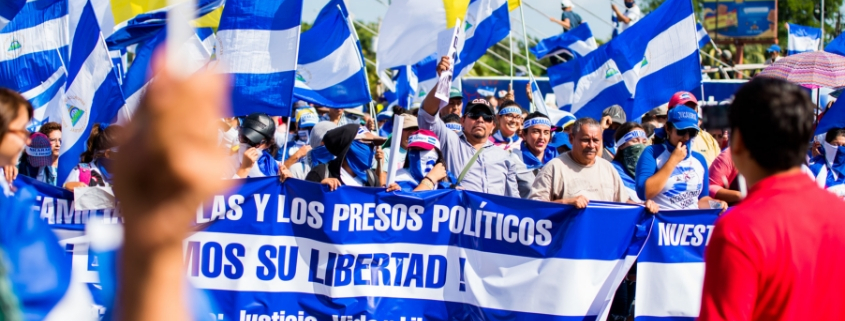
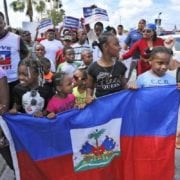

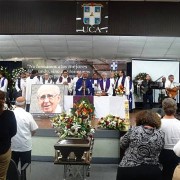
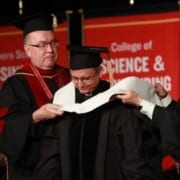
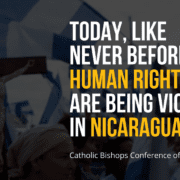
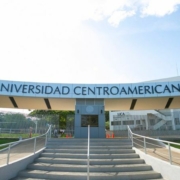

Thus wrote Mahatma Gandhi: “I object to violence because when it appears to do good, the good is only temporary; the evil it does is permanent.”